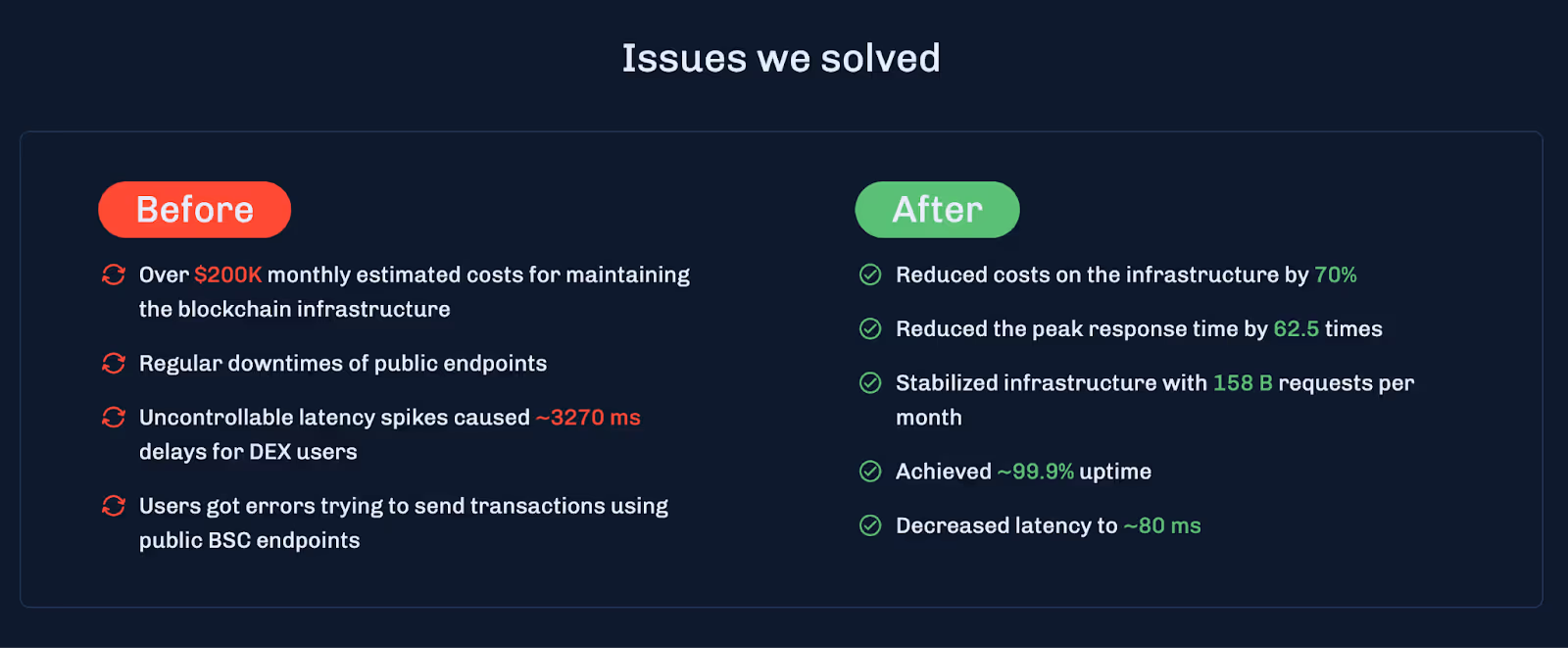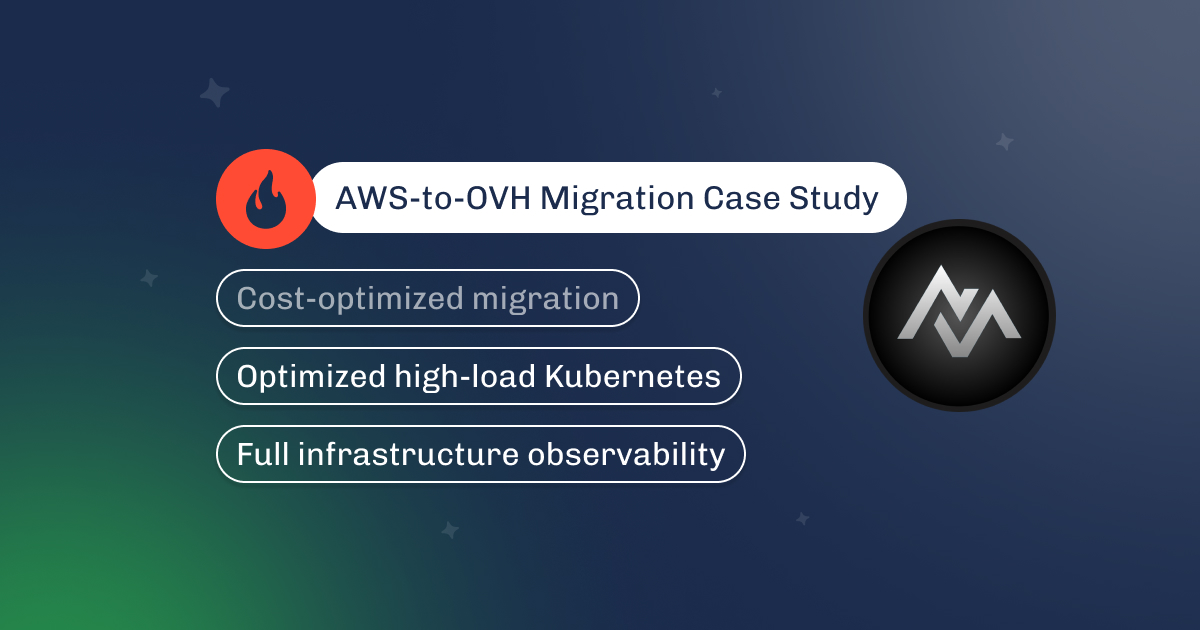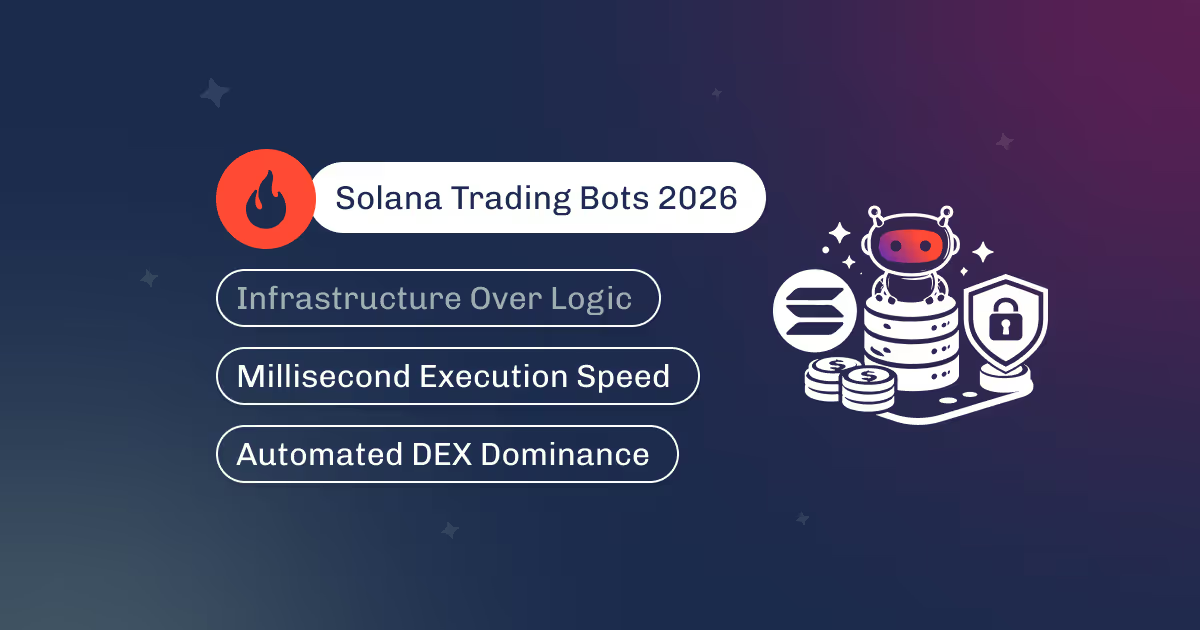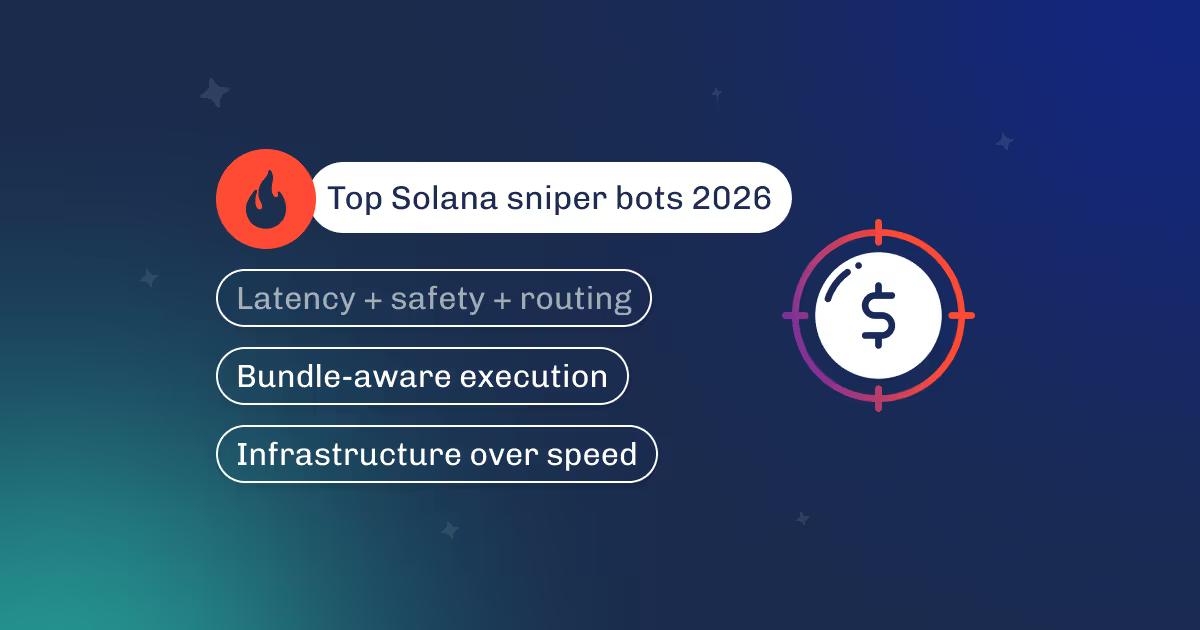
Sure, you could duct-tape your cloud costs with spreadsheets and prayers (we've all been there), but why not level up with pros who turn financial chaos into strategic wins?
In 2025, FinOps links engineering skills directly to business success.
As Dysnix experts in blockchain and AI workloads, we've picked 12 standout providers from around the world, skipping the usual giants. They offer 20-40% savings, real-time insights, and ESG features. From Israel's anomaly detectors to Canada's optimization tools, these services automate your workflows and keep innovation steady without cost surprises.
Let's explore and find the right one for you.
The FinOps mindset has evolved. It’s a way to align cloud usage with business goals in real time. According to the FinOps Foundation, collaboration between finance and engineering is now the #1 driver of cost efficiency in the cloud.
Top trends in 2025 include:
Companies adopting mature FinOps practices report not only lower bills, but faster decision-making, more predictable forecasting, and better team alignment.
Now you probably see why this matters… and you're ready to dive into the top FinOps service providers.

Dysnix leads the FinOps space in 2025 with full-cycle cloud cost optimization for AI, Web3, and high-load systems. The company has completed over 100 projects, helped clients save more than $20 million on infrastructure, and manages cloud environments with over $10 billion in combined market cap.
Their approach covers the entire FinOps lifecycle—from initial assessment to strategy, autoscaling, anomaly detection, and real-time monitoring. Every solution is tailored, developer-friendly, and integrated directly into CI/CD and IaC pipelines. Clients reduce cloud bills by up to 70% without losing performance or speed.
Key benefits of Dysnix FinOps:
Dysnix makes budgeting predictable with fixed pricing and delivers results fast through custom autoscaling strategies, deep observability, and automated cost reporting. Their team works closely with engineers, helping companies like Polygon, zkSync, and Kolibrio align infrastructure spend with growth targets.
| Characteristic | Details |
|---|---|
| Core Focus | Blockchain node infrastructure, Node as a Service, and cost-optimized API for Web3. |
| Founded & Location | Over 7 years in market (est. ~2018), global (US, EU, Asia). |
| Key Strengths | Up to 5x cost reduction, AI auto-scaling, 99.9% uptime, fixed pricing. |
| Supported Clouds | GCP, Kubernetes + supports Solana, Ronin, Polygon, zkSync, Ethereum scaling. |
ProsperOps is your go-to for hands-off cloud cost optimization, specializing in automating savings on AWS, Azure, and Google Cloud. Founded in 2018 and headquartered in Austin, Texas, this USA-based company manages over $4 billion in annual spend and has racked up $2.4 billion in lifetime savings for clients. They're known for boosting Effective Savings Rates (ESR) through AI-driven management of reservations and commitments, turning what could be a headache of manual tweaks into a seamless, set-it-and-forget-it process. No wonder they're a favorite for teams who want top-tier FinOps without tying up engineering time.
In real-world action, ProsperOps has powered savings for big names like Coinbase, where it freed up devs to tackle higher-priority tasks, and Moveworks, slashing AWS bills with minimal setup.
Startups like Duolingo and enterprises like Canva use it to handle dynamic workloads, achieving 50%+ savings increases in many cases. It's all about delivering ROI that pays for itself—literally, since they only charge based on actual savings generated.
| Characteristic | Details |
|---|---|
| Core Focus | Automated rate optimization and commitment management for cloud discounts. |
| Founded & Location | 2018, Austin, TX, USA. |
| Key Strengths | High ESR boosts, zero engineering impact, multi-cloud support with intelligent showback. |
| Supported Clouds | AWS, Azure, Google Cloud. |
Imagine spotting cloud cost anomalies before they snowball into budget disasters—Anodot makes that a reality with its AI-powered monitoring magic. Founded in 2014 and headquartered in Herzliya, Israel (with a strong US presence in San Mateo, California), this innovative company analyzes billions of data points daily, serving over 100 enterprises and managing petabytes of data.
They're renowned for their autonomous analytics platform that detects business incidents in real-time, slashing alert noise by up to 95% and optimizing resources across fintech, telco, gaming, and adtech sectors. It's FinOps with a foresight twist, blending machine learning for forecasting and root-cause analysis to keep your spend in check without constant babysitting.
On the case front, Anodot has delivered game-changers for clients like T-Mobile, where it helped modernize network operations by flagging issues hours before customer impact, or adtech firm NetSeer, improving ad delivery through anomaly detection in vast datasets. PayPal and Microsoft have tapped into its prowess for revenue protection and cost efficiency, often seeing ROI in weeks.
| Characteristic | Details |
|---|---|
| Core Focus | AI-driven anomaly detection, real-time alerts, and spend forecasting for business monitoring. |
| Founded & Location | 2014, Herzliya, Israel (US offices in San Mateo, CA). |
| Key Strengths | Reduces alert noise by 95%, autonomous ML correlations, seamless BI integrations. |
| Supported Clouds | AWS, Azure, GCP, and others including data sources like Snowflake. |
High-growth SaaS companies have used CloudZero to uncover hidden inefficiencies in their AWS environments, cutting waste and saving up to 30% on cloud spend. AI-driven firms rely on it to forecast costs amid volatile workloads, enabling faster decisions and more strategic use of cloud resources.
These outcomes are possible thanks to CloudZero’s precision-first approach to cloud cost intelligence. Its platform automatically maps every dollar to a feature, product, or team, making unit economics and cost-per-customer fully transparent. Teams no longer guess what’s driving cloud bills; they see it in real time.
Founded in 2016 and headquartered in Boston, Massachusetts, CloudZero manages billions in cloud spend. It's trusted by engineering-heavy companies that want to align their technical decisions with financial impact, without slowing down innovation.
| Characteristic | Details |
|---|---|
| Core Focus | Cloud cost intelligence with unit economics, waste detection, and engineering impact analysis. |
| Founded & Location | 2016, Boston, MA, USA. |
| Key Strengths | Real-time granularity, automated allocation, predictive insights for better ROI. |
| Supported Clouds | AWS, Azure, GCP, Kubernetes, Snowflake. |
Tired of piecing together cloud bills like a jigsaw puzzle? Finout simplifies it all with its enterprise FinOps platform, offering unified visibility across multi-cloud and SaaS spend.
Founded in 2021 and hailing from Tel Aviv, Israel, this agile company empowers finance and dev teams with virtual tagging and cost allocation that scales effortlessly. They're famed for turning complex mega-bills into clear, actionable insights, especially in fast-paced environments where every dollar needs to count toward innovation.
Real-world wins include boosting efficiency for security giants like Wiz and Orca Security, where Finout cut cloud costs by automating governance and preventing overspend during rapid scaling. AppsFlyer and Forter also leveraged it for precise showback models, achieving accountability that freed up budgets for growth initiatives, showcasing how Finout makes FinOps feel like a superpower rather than a chore.
| Characteristic | Details |
|---|---|
| Core Focus | Unified cost management with virtual tagging, governance, and SaaS integration. |
| Founded & Location | 2021, Tel Aviv, Israel. |
| Key Strengths | Agentless setup, 100% allocation accuracy, scalable for enterprises. |
| Supported Clouds | AWS, Azure, GCP, Kubernetes, Datadog, Snowflake. |
Navigating multi-cloud chaos? Ternary steps in as your FinOps command center, streamlining cost optimization and governance across major providers. Established in 2020 and headquartered in San Francisco, California, this US-based platform is a certified FinOps Foundation member and Google Cloud Partner, trusted for its collaborative tools that blend finance, engineering, and sustainability metrics. They're known for a single-pane view that enforces policies and uncovers savings, ideal for organizations juggling hybrid setups without losing sight of ESG goals.
Case in point: Ternary has optimized spend for tech enterprises migrating to multi-cloud, like helping a global retailer automate rightsizing on Azure and GCP to trim 25% off bills while meeting compliance. Other clients in fintech praise its anomaly alerts and forecasting, turning potential overruns into proactive wins that keep teams agile and budgets intact.
| Characteristic | Details |
|---|---|
| Core Focus | Multi-cloud cost visibility, policy enforcement, and ESG-integrated optimization. |
| Founded & Location | 2020, San Francisco, CA, USA. |
| Key Strengths | Collaborative dashboards, automated workflows, FinOps certification. |
| Supported Clouds | AWS, Azure, GCP, Oracle Cloud. |
Want to weave FinOps right into your DevOps flow? nOps makes it happen with a platform that automates cloud cost optimization, compliance, and rightsizing. Founded in 2017 and based in San Francisco, California, this US company is a FinOps Foundation member, trusted by startups and enterprises alike for managing over $1.5 billion in cloud spend annually.
nOps has driven wins for companies like ZoomInfo, where it streamlined AWS costs by automating resource allocation, cutting waste by up to 35%. Healthcare tech firms also lean on nOps for compliance-heavy environments, ensuring HIPAA and SOC2 adherence while optimizing Kubernetes clusters. It’s FinOps that feels like a natural extension of your engineering toolkit.
| Characteristic | Details |
|---|---|
| Core Focus | Automation for cost optimization, compliance, and CI/CD-integrated FinOps. |
| Founded & Location | 2017, San Francisco, CA, USA. |
| Key Strengths | ML-driven insights, Kubernetes optimization, compliance automation. |
| Supported Clouds | AWS, Azure, GCP, Kubernetes. |
Kubernetes can be a cost black hole, but Kubecost shines a light with its specialized cost monitoring and optimization platform. Launched in 2019 and headquartered in San Francisco, California, this US-based firm is a darling of cloud-native teams, offering granular visibility into Kubernetes costs down to the pod or namespace level. They're celebrated for forecasting GPU-heavy workloads, making them a hit for AI/ML startups and Web3 projects needing precision without complexity.
Real-world impact? Kubecost helped a gaming company cut Kubernetes spend by 40% by identifying idle resources in AWS EKS clusters. Fintech clients like Brex use it to track costs per microservice, aligning budgets with sprint cycles. It’s the tool for teams who want to tame container chaos while keeping innovation on track.
| Characteristic | Details |
|---|---|
| Core Focus | Kubernetes cost monitoring, allocation, and optimization for cloud-native environments. |
| Founded & Location | 2019, San Francisco, CA, USA. |
| Key Strengths | Granular pod-level insights, GPU forecasting, cost allocation for microservices. |
| Supported Clouds | AWS, Azure, GCP, Kubernetes-native environments. |
Densify eliminates the guesswork from resource optimization by using predictive analytics to rightsize virtual machines and containers across hybrid cloud environments. Originally founded in 1999 as Cirba and rebranded in 2016, this Toronto-based company brings decades of experience in managing complex enterprise workloads, particularly for industries like banking and retail.
One of Canada's leading banks reduced Azure VM costs by 30% with Densify’s optimization tools, while a global logistics company improved hybrid cloud performance through more efficient resource allocation. With native integrations for Terraform and Ansible, Densify simplifies FinOps for teams dealing with large-scale infrastructures, helping them operate more efficiently and cost-effectively.
| Characteristic | Details |
|---|---|
| Core Focus | Predictive resource optimization and rightsizing for VMs and containers. |
| Founded & Location | 1999 (rebranded 2016), Toronto, Canada. |
| Key Strengths | AI-powered workload forecasting, hybrid cloud support, IaC integration. |
| Supported Clouds | AWS, Azure, GCP, IBM Cloud, VMware. |
Centilytics simplifies sprawling cloud environments, empowering teams to stay agile and cost-efficient without getting lost in data. Its full-stack platform brings order to cloud chaos by addressing cost, performance, and compliance all at once—making it a go-to choice for enterprises operating in complex, regulated industries.
Praised for its granular dashboards and real-time visibility into spend, security, and governance, Centilytics has become a favorite among organizations that need to balance innovation with strict oversight. A fintech unicorn in Asia cut AWS costs by 25% through Centilytics’ automated rightsizing and policy enforcement, while a healthcare provider used its compliance tools to pass audits seamlessly without compromising operations.
| Characteristic | Details |
|---|---|
| Core Focus | Multi-cloud cost management, compliance, and performance optimization. |
| Founded & Location | 2016, Noida, India. |
| Key Strengths | Granular dashboards, compliance automation, cost allocation for regulated sectors. |
| Supported Clouds | AWS, Azure, GCP, private clouds. |
Holori transforms cloud cost management into a visual, intuitive experience, making it easier for teams to plan, optimize, and control their multi-cloud environments. Headquartered in Paris and founded in 2020, this European startup brings an architecture-first approach—blending infrastructure mapping with cost forecasting to detect inefficiencies early, a major advantage for fast-scaling startups.
Its diagram-based interface turns complex cloud setups into clear, actionable visuals. One European e-commerce platform reduced its GCP spending by 20% thanks to Holori’s visual optimization insights, while a SaaS startup avoided costly overruns during a product launch using its planning tools.
Holori’s unique strength lies in turning FinOps into a creative, collaborative process—helping developers and teams spot potential issues before they impact budgets or performance.
| Characteristic | Details |
|---|---|
| Core Focus | Cloud cost visualization, architecture diagramming, and optimization. |
| Founded & Location | 2020, Paris, France. |
| Key Strengths | Visual-first cost mapping, proactive forecasting, user-friendly for devs. |
| Supported Clouds | AWS, Azure, GCP, DigitalOcean. |
A Polish tech startup cut Azure costs by 30% thanks to Cloudchipr’s automated resource cleanup. A gaming company optimized its Kubernetes clusters on GCP using real-time insights. These results aren’t outliers—they reflect Cloudchipr’s core strength: developer-centric cloud cost optimization.
Built with engineers in mind, Cloudchipr integrates directly into IaC workflows like Terraform, making it a natural extension of the DevOps toolkit. Its focus is clear—rightsizing, waste elimination, and transparency across multi-cloud environments.
Launched in 2021 and headquartered in Warsaw, Poland, Cloudchipr is quickly gaining traction among startups and scaleups. It delivers enterprise-grade FinOps capabilities without the enterprise-level price tag—ideal for tech teams that need power and flexibility without bloated subscriptions.
| Characteristic | Details |
|---|---|
| Core Focus | Open-source-friendly cost optimization and rightsizing for multi-cloud. |
| Founded & Location | 2021, Warsaw, Poland. |
| Key Strengths | IaC integration, affordable pricing, automated waste detection. |
| Supported Clouds | AWS, Azure, GCP, Kubernetes. |
We’ve just explored 12 of the top FinOps providers reshaping how companies manage cloud spending. But theory is one thing. And practice is where it gets real. So, what does a top-tier FinOps implementation actually look like?
Let’s take a look at one standout case. And no surprise here: it comes from Dysnix, the №1 provider on our list.

During high-traffic periods like airdrops, PancakeSwap, a leading DEX on BNB Chain, struggled with overloaded infrastructure, latency spikes, and skyrocketing costs. Dysnix stepped in with a tailored blockchain node cluster, AI-powered autoscaling, and smart load balancing across Kubernetes.
As a result, Dysnix helped PancakeSwap:
It was a sustainable FinOps system designed for long-term scalability, observability, and cost predictability.









